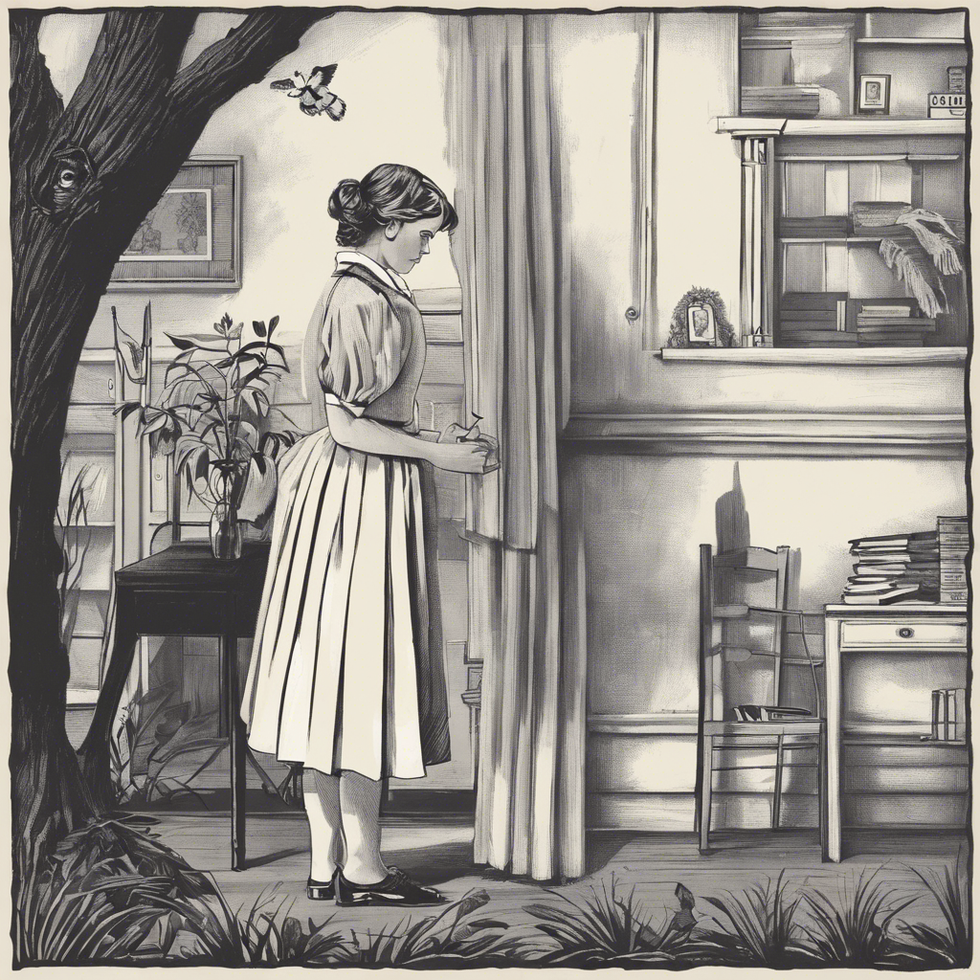Readers mostly interpret Miss Caroline as a "bad teacher" but this has to do with our overall lack of perspective. It's easy to say her actions regarding not wanting Scout to read are unjustified. However, we're not delving deeply into the time period in which the story takes place and Miss Caroline's age as contributing factors explaining why we interpret her as a “bad teacher”.
To better understand perspective, we must also consider Scout's insight toward Miss Caroline. Scout tends to assume that Miss Caroline should know about the personal lives of each Maycomb student in her first-grade class. However, in the novel, we learn that Miss Caroline is from Winston County, AL, which has a larger population than Maycomb, aka Monroeville, AL. As a result, we have no idea if her community is as tight-knit as Maycomb's, where all citizens seem to know everything about everyone. It's evident she knows little about her first-grade class and the county she has moved to when she "seemed unaware that the ragged denim-shirted and flour-sack-skirted first grade, most of whom had chopped cotton and fed hogs from the time they were able to walk, were immune to imaginative literature" (Lee 22). During the Great Depression, the majority of teachers usually left home to teach in unfamiliar communities. The expectation was that they held onto their teaching positions "like grim death." Therefore, we can only imagine how anxiety-ridden and isolating it must have been for Miss Caroline in and out of the schoolhouse.
Lee suggests that Miss Caroline is young, "no more than twenty-one". Today, a twenty-one-year-old would still be in college; therefore, we must comprehend the feeling of being overwhelmed. This is shown when her class is dismissed for lunch, and she "sinks down into her chair and buries her head in her arms". Even though she is distressed and unaware of the ways of Maycomb County, she tries to be attentive to Walter Cunningham, offering him a quarter so he can buy himself lunch (Lee 21, 25, 29). As a new teacher in a new school district, the mistake she makes after learning he will be unable to pay her back is understandable. Teachers during the Great Depression were often called upon to fund meals for their students and prepare them in the classroom, and this is exactly what Miss Caroline attempts to do (Field and Bellows 2012).
I would describe Miss Caroline as a new, inexperienced teacher who feels the pressure of starting over in unfamiliar territory. As Atticus says to Scout, "[y]ou never really understand a person until you consider things from his point of view [...] until you climb into his skin and walk around in it". This statement is remarkable as it emphasizes the importance of seeing matters from others' perspectives rather than just one's own. We cannot "expect [Miss Caroline] to learn all Maycomb's ways in one day, and we could not hold her responsible when she [knows] no better" (Lee 39-40). Miss Caroline will progress as a character and become a suited role model to her students through the years as she assimilates herself into Maycomb County and learns how to serve each student's needs. I would love to hear what all of your opinions are on how the education system was viewed and if Miss Caroline's treatment toward Scout was justified or not.
Text Works Cited:
Field, Sherry L., and Elizabeth Bellows. "The great depression and elementary school teachers as reported in Grade Teacher magazine." American Educational History Journal, vol. 39, no. 1-2, annual 2012, pp. 69+. Gale Academic OneFile, link.gale.com/apps/doc/A305660519/AONE?u=nysl_oweb&sid=googleScholar&xid=8f552384. Accessed 18 Apr. 2024.
Hale, F. 1932a. Ask Florence Hale. Grade Teacher March: 554.
Lee, Harper. To Kill a Mockingbird. Grand Central Publishing, 1960.















